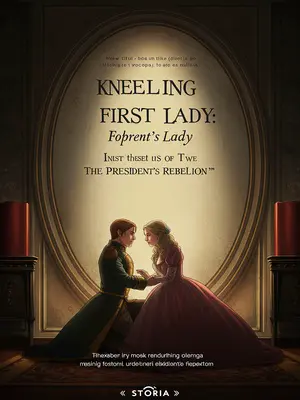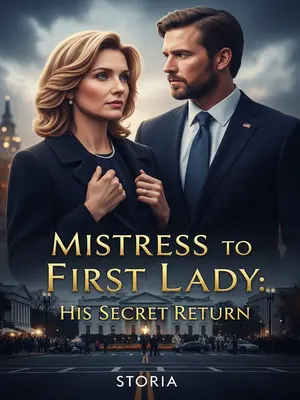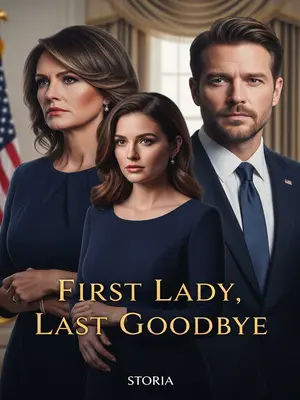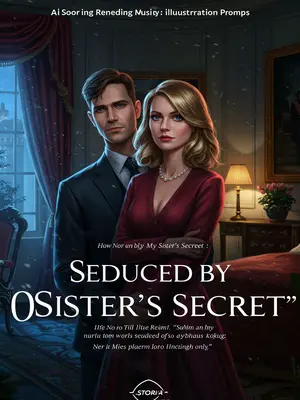Chapter 11: Three Days of Fire
My pupils shrank; Ethan shook his head at me from afar—I could not bear the infamy of patricide. I closed my eyes, then ordered, “Fire!”
At my command, I leapt off my horse and killed the enemy leader. The tide turned; the Dakota fled.
I went to Robert Hayes, lifting him. Such a tall man now lay weakly in my arms, awaiting death. Somehow, I should have been happy, but I wept as if it were raining.
He looked at me, suddenly smiled, raised his sand-stained, torn hand, and wiped my tears, only smearing blood on my face. My voice trembled. “Why... Dad.”
Robert Hayes leaned close, gasping, “Audrey is ruthless—Dad is proud, I don’t blame you... My daughter is brave, will gain the country—this road is hard, be careful... I wronged your mother, you should kill me—no, you didn’t kill me...”
His chest heaved, blood foamed. He looked at his confidants rushing over and shouted, “Audrey Hayes is my daughter—brave and wise, she succeeds me, guards the frontier. You must be loyal to her as to me—”
These words used all his strength; his mind faded, the wind scattering his words.
“Audrey, Audrey.”
“Rachel, Rachel, Robert is here—”
How dare he—how could he—how could he mention Mom again?
Rachel—my mother’s name.
My mother was a merchant’s daughter, beautiful but frail, Robert Hayes’s childhood sweetheart. A southern belle and a security boy. Mom once gently told me of their childhood, their marriage, hoping to grow old together. They were engaged as children; then my grandfather rose, Robert Hayes also became famous.
All shattered that summer. I sneaked out and saw Dad with a pregnant woman in an alley—coldness hit my head, I followed, saw their intimacy. I don’t know how I stumbled home; the sun seemed to scorch me, I felt unreal and sick.
Mom, three months pregnant, was embroidering for my sister. She softly called me; I didn’t know how to speak. She was so weak, like a lily, but still happily wanted to give Dad another child. I said nothing, dared not.
After that, I watched them closely, hadn’t figured out how to handle it. A month later, the woman—pregnant—brought her child to the door.
I left friends at the lake, rode home like mad, saw Mom in blood, Dad weeping, chaos everywhere. I blacked out, lips tight, took the Liberty Saber, searched the mansion, found nothing. At last, red-eyed, I stared at Dad, hoarse, tears gone.
I asked, “Where is she? I’ll kill her. She must die.”
Robert Hayes panicked, even forgot to cry, told everyone, “Audrey is too sad, mad—lock her in the attic to calm down.”
In the attic, I felt endless days and nights, darkness everywhere. Grandma, hearing the news, fell ill; uncle rushed over, saw the house draped in black, only grief left. I opened my mouth, but in despair found I could say nothing. Robert Hayes cleared all suspicion, appeared clean, mourned his wife, pitied his mad daughter. Grandpa, powerful as he was, was just a businessman, while Robert Hayes controlled the Midwest.
I stared at him calmly, asked to go to D.C. as a political hostage. Robert Hayes looked at me, finally agreed, “A change of scenery may help.” But we both knew, next meeting, we would be enemies.
Then, I was twelve, fell from the clouds, never saw sunlight again. Today, I’m sixteen—killed my enemy, but still see no light. The wind and sand quickened; Robert Hayes’s breath stopped, his body cold. The world lost another person who called me Audrey.
---
After that day, with Robert Hayes’s dying words, I did not have to fight for my place, but smoothly donned armor and went to war. Old generals were unconvinced, but couldn’t match my prowess and wisdom. In a year, I made the tribes fear me. Now in camp, my orders were law.
With Ethan’s recommendation, I met the retired Supreme Court Justice, sincerely knelt to him. After a long silence, he sighed, “It’s fate.”
He taught me the arts of leadership, often saying I was too cold and tough, needing more kindness. I tried to practice it.
Using the Brooks family’s trade routes overseas, I secured the borders, turned enemies into friends. Many small tribes surrendered, large ones made peace. I enacted good policies—harsh at first, then nurturing—encouraged production and study, promoted poor scholars. As a woman, I promoted female education, let women out of the home, set up female officials and generals, recruited talent. I sought out productive seeds from overseas, spread them so people had enough to eat and wear.
I reformed the bureaucracy, made politics clean, won the people’s trust. In three years, while the country was in turmoil, my Midwest was stable—the first choice for refugees.
The prairie bloomed under my rule, the people calling me their Iron Lady. Children learned to read, women learned to lead. I felt pride I’d never known before.
Three years later, Henry resumed correspondence. From spring flowers to politics.













